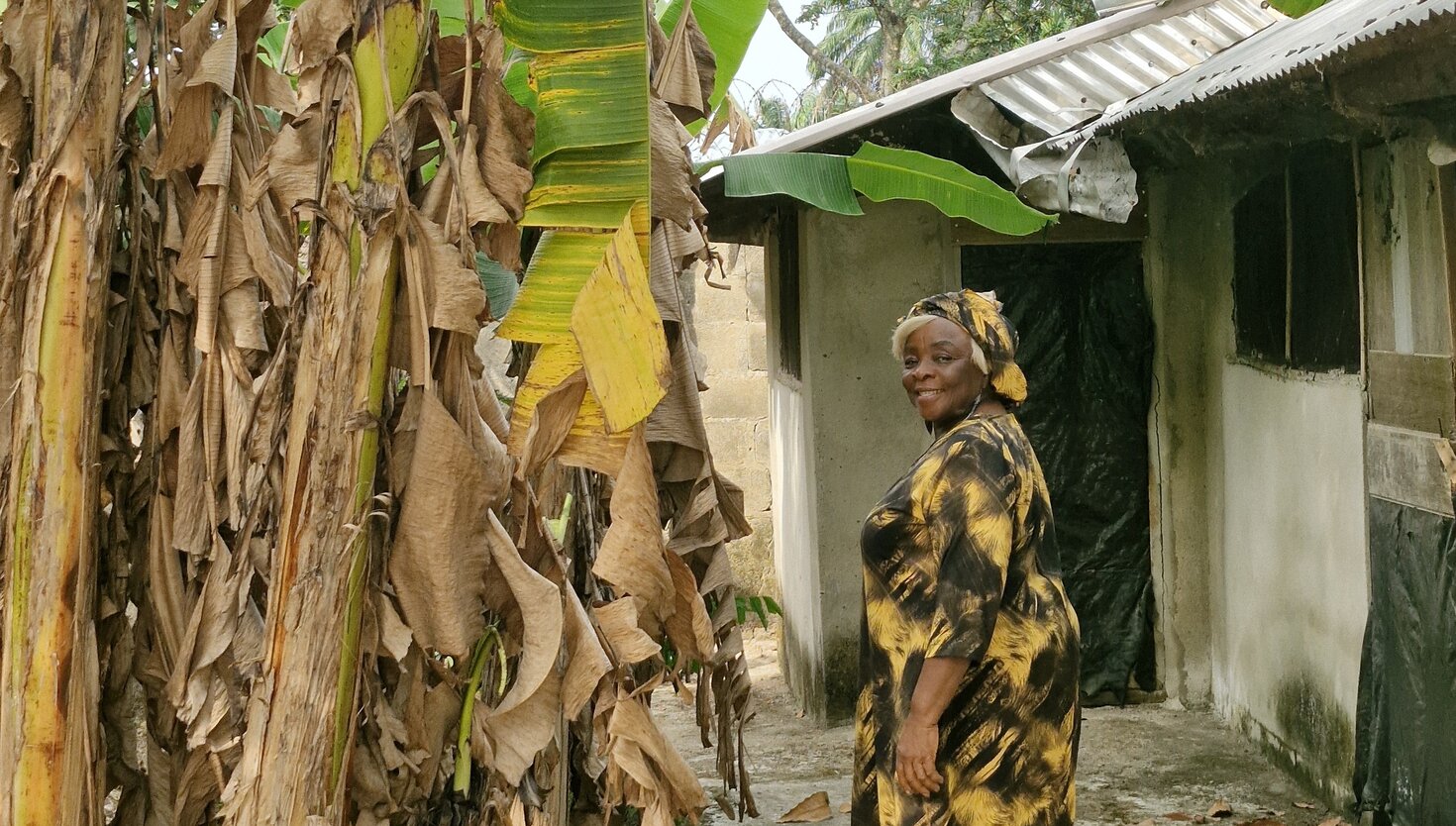
Three Gates Cambridge Scholars are collaborating on a project to address food insecurity in sub-Saharan Africa
We keep talking about food insecurity, but there is a huge disconnect between what we do and how we think about these problems from a Global North perspective and what small-scale farmers in Africa need.
Carol Ibe
Three Gates Cambridge Scholars are collaborating on an innovative project to map and address the disappearance of historically undervalued African indigenous and traditional food crops at a time of climate crisis.
The project is the brainchild of Dr Carol Ibe, founder of the JR Biotek Foundation, a charity which trains, upskills and empowers present and future African agricultural research scientists to develop and lead high-impact projects that address food and nutrition insecurity on the continent.
Carol has been working with Albert Arhin [2012] over the past few months to make sure that the project is relevant to the current situation for farmers on the ground in sub-Saharan Africa. Albert is a climate change and sustainability research fellow in Ghana where he also leads on a major climate adaptation project, working closely with rural farming communities. Another collaborator is Chioma Ngonadi [2015], an agricultural archaeologist from Nigeria who was at Cambridge at the same time as Carol.
Also contributing to the project as expert advisers are Juliet Kariuki and Francis Wamonje. Based in Germany, Juliet is an agricultural sociologist with extensive experience in climate change adaptation, gender and the environment from a Global South perspective. Francis is a Research Leader at a UK institution whose work focuses on using cutting-edge technologies to accelerate the detection of plant pathogens in insect and plant hosts. Both Francis and Carol did their PhDs in Plant Sciences at Cambridge.
The project was inspired by concerns about the disappearance of certain indigenous and traditional African crops, from cereals to legumes to tree crops, and the shift for smallholder farmers to grow more conventional and agro-industrial crops, which are agri-input intensive and often less adaptable in certain parts of sub-Saharan Africa. “I had noticed that certain crops that I grew up with were slowly but steadily disappearing and we didn’t seem to know why. Among other factors (socio-economic and political), climate change plays a significant role in the decline of these key food security crops, which smallholder farmers mostly cultivate,” says Carol.
Smallholder farmers
However, despite the grave threats of climate change to indigenous crops and cropping systems, it is not immediately clear how smallholder farmers understand and deal with these challenges.
“Most of my relatives in Nigeria are smallholder farmers who solely rely on subsistence farming to earn a daily living. Whenever I talk with them, they share their concerns about the unpredictable weather patterns (among others) and how this is affecting their crop productivity, income generation potential and overall livelihoods. Unfortunately, it doesn’t seem like there is help available to them because many of them live in far-to-reach rural communities,” says Carol. “This is concerning, especially as the climate situation is set to worsen over the next few decades. Immediate and appropriate action is needed to address this problem, and the most effective and impactful solutions must integrate the farmers’ voices and needs. That is why we developed the Agri-Innovation & Impact Project (AGRIIP).”
AGRIIP is a five-year strategic vision aimed at accelerating the development of demand-driven and locally adaptable innovative solutions for smallholder farmers who produce a significant proportion of Africa’s food supply but struggle to earn a decent living. The interdisciplinary and multidimensional project will bring together 100 Africa-based scientists, over 3,000 smallholder farmers and other key stakeholders over five years to champion innovations for improving the production, protection (from extinction) and value addition of historically understudied and undervalued African indigenous and traditional crops in a sustainable, inclusive and eco-friendly manner.
“These crops are the go-to crops for millions of people in sub-Saharan Africa and they remain integral to the local food systems, cultural traditions, economic growth and environmental sustainability. Unfortunately, despite their intrinsic importance, scientific research to boost their productivity and protection amidst a looming climate crisis has been hindered, consequently leading to significant losses of crops and their associated culture and cropping and culinary practices,” says Carol.
“We can’t afford to continue to lose these crops because it further exacerbates hunger, malnutrition and extreme poverty and rids people of decent livelihoods. We keep talking about food insecurity, but there is a huge disconnect between what we do and how we think about these problems from a Global North perspective and what small-scale farmers in Africa need.
“We need to go back to the drawing board and find out what the priorities are for these farmers so that we can create effective solutions that work for them. This is the essence of this project – to not just look at the issue of climate change-driven crop losses from a biological perspective but to use an inter- and multi-disciplinary and multi-stakeholder partnerships approach, involving the social sciences and even art to re-imagine the central role of key African crops in supporting communities, culture and human flourishing.”
A holistic project
The project builds on JR Biotek’s ‘Africa Bio-innovation Challenge’ initiative, which supported a Benin Republic-based agribusiness start-up with seed funding in 2018.
By engaging thousands of smallholder farmers, the project aims to identify top-priority climate challenges, with scientists leading the development and implementation of breakthrough solutions that work for farmers, businesses and consumers. The project will provide expert training in bio-entrepreneurship and commercialisation and a unique platform to support the translation of the most promising innovations to successful start-ups and enterprises, which will create employment opportunities, particularly for women and young people in rural farming communities.
Chioma’s role as an agricultural archaeologist will help to identify the crops that were grown historically and chart how and when any shifts occurred. Carol, who is working with other collaborators, is also interested in the socio-cultural impact of the loss of culture and language associated with the disappearance of traditional crops. “We want to create a study that is holistic, relevant and practical to solving pressing local challenges,” she says.
Carol [2015] is determined that it will help to address food insecurity issues in Africa. It links in part to her PhD on the putative role of three rice receptor kinases during intracellular accommodation of the deleterious rice blast pathogen (Magnaporthe oryzae) in rice roots. She reached out to Albert, Chioma, Francis and Juliet because of their expertise and in-depth understanding of the problems faced locally, including resource limitations, and because they can shape a vision that works on the ground. She adds that Gates Cambridge has been a really useful network for her work, stating: “It is such a resource for connecting people working in similar areas who have a shared vision and passion and an interest in work that crosses different lines.”
*The project welcomes partnerships with funding agencies and donors
**Picture: Carol’s mother on her smallholding in Nigeria.












